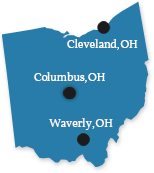More than one in four serious cases of nursing home abuse goes unreported to police.
If that statistic doesn’t shock you, consider this: State and federal law require serious cases of nursing home abuse to be turned over to police. Serious means severe enough to require emergency room medical attention, including one case where a woman was deeply bruised after sexual assault. Her case was not reported immediately to police; instead, she was cleaned, with all evidence for a rape kit destroyed.
Earlier this summer, the Office of Inspector General, Department of Health and Human Services, found in an audit of Medicare beneficiaries in skilled nursing facilities (SNF) that 134 seniors’ injuries requiring an ER visit may have been the result of potential abuse or neglect between January 1, 2015, and December 31, 2016. A “significant percentage” went unreported to police, leading the Inspector General to determine that the Centers for Medicare and Medicaid Services (CMS) “has inadequate procedures to ensure that incidents of potential abuse or neglect of Medicare beneficiaries residing in SNFs are identified and reported.”
It’s important to note that this information only deals with cases involving severe injuries. Ohio, and the nation’s, statistics for nursing home abuse go much deeper. About 15,000 cases of elder abuse — which includes abuse, neglect, and financial exploitation — are reported in Ohio every year, with about 80% of those occurring in Cuyahoga County alone.
Still, what does this audit mean for skilled nursing facilities in Ohio? Let’s take a look.
Inspector General Issues Early Alert for Nursing Homes
The Office of Inspector General issued an Early Alert in August 2017 containing suggestions for what CMS could immediately do to better protect the elderly. Although the audit included two years’ worth of data, the Early Alert excluded calendar year 2015, so all incidents measured were from 2016.
Instances of serious nursing home abuse were identified in 33 different states, Ohio included, with the primary diagnosis of potential abuse or neglect ranging from the following types of ER visits:
- Observation after alleged rape or seduction;
- Adult sexual abuse;
- Adult physical abuse;
- Adult neglect or abandonment;
- Adult maltreatment, unspecified;
- Sexual sadism.
One hundred of the 134 incidents contained indications, such as witness statements and photographs, that the skilled nursing facility residents’ injuries may have been caused by abuse or neglect. The Inspector General determined whether incidents were reported to law enforcement based on review of hospital and survey agency records; 96 were confirmed reported to law enforcement at the time of injury. All 134 incidents were referred by the Inspector General to law enforcement after the preliminary audit.
According to the federal Inspector General’s Office, Ohio had seven incidents of potential abuse or neglect in skilled nursing facilities in 2015 and 2016. It tied with New York for the fifth-most incidents of all 50 states, with Illinois having the most incidents (17).
See also: Nursing Home Abuse: What are Ohio’s Statistics?
What did CMS do wrong?
The Inspector General’s Early Alert states that the Centers for Medicare and Medicaid Services has not taken various enforcement actions to ensure all incidents are identified and reported. Skilled nursing facilities must investigate all allegations of abuse and report the results of their investigation within five days. Additionally, Section 1150B of the Social Security Act requires “covered individuals” in federally funded long-term care facilities to report any suspicion of a crime committed against a resident of that facility — submitting them to at least one law enforcement facility and the survey agency.
Covered individuals are those who are an owner, operator, employee, manager, agent, or contractor of a long-term care facility that received at least $10,000 in federal funds in the preceding year. Per 1150B, if an incident results in serious bodily injury, it must be reported within two hours. All other cases must be reported within 24 hours of a confirmed suspicion.
Those who fail to report under 1150B are subject to penalties of up to $300,000 and possible exclusion from participation in any federal health care program. However, this law is relatively new, strengthened in 2011 but without any clear enforcement direction.
The Inspector General’s immediate suggestions for CMS include implementing procedures to compare Medicare claims for emergency room treatment with claims for skilled nursing facility services to identify potential abuse. The office also requests working with the Secretary of Health and Human Services to impose civil monetary penalties.
Formal recommendations will be made when the full report is complete, in about a year.
See also: How the Trump Administration is Already Undermining Ohio Nursing Home Residents’ Rights
Get Help Today with Nursing Home Abuse
No matter how severe the injury, nursing home abuse is a serious problem. Many cases go unreported, but you and your loved ones do not have to suffer alone.
If a member of your family has been abused at a long-term care facility in Ohio, the experienced nursing home abuse attorneys of Plevin & Gallucci can help. We have been fighting on behalf of injured victims’ rights for more than 45 years.
Our most vulnerable deserve to be protected. Contact us today for a free consultation by calling 1-855-4-PLEVIN or filling out our online case review form.
You may also be interested in:
- President Trump’s Politics and What it Means for Nursing Home Abuse Lawsuits
- Nursing Homes: Use Your Senses to Choose the Right One
- What You Need to Know and Ask Before Placing a Loved One in a Nursing Home
- Adult Protective Services: How to Get Help in Ohio
- How Safe are Ohio Nursing Home Residents from Natural Disasters?

